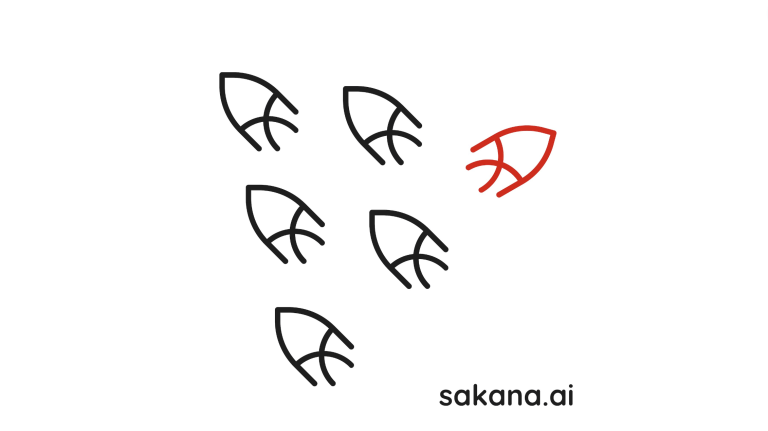Years ago in San Francisco, Gaurav Agarwal escaped a near-death experience while driving a semi-autonomous vehicle. At the last moment, Agarwal had to intervene to override the system, as the car failed to apply brakes at a crucial juncture. This incident got him thinking about how such failures can be avoided. He found that it is extremely difficult to detect, diagnose, and fix these failures. These efforts eventually led to him building RagaAI.
Coming out of stealth mode with a $4.7million funding, is the AI-focused startup RagaAI. Building the world’s first automated platform for detecting AI issues, diagnosing and fixing them, RagaAI looks to remove human interventions for continuous improvements.
“At RagaAI, we are addressing one of the most important problem statements of the AI industry, which is AI failures,” said Gaurav Agarwal, founder and CEO of RagaAI, in an exclusive interaction with AIM. “If AI from the leading companies of the world, OpenAI’s of the world, are failing, then you can think about the thousands of companies that are building and deploying AI.”
The Need For Fix
Over the years, Agarwal has witnessed the struggles of teams building AI. “As a data scientist, one wants to spend a lot of time building AI, rather than testing, which comes as an afterthought. And, this becomes a big issue,” said Agarwal.
“We have been working heads down to build the core technology which is a foundation model that we call RagaAI DNA. We have tested the technology and have proven the technology with our customers, and now we believe it’s time for us to start scaling,” said Agarwal. “I believe that Gen AI and AI is magical, and the impact it has on our lives and society is profound, but the failures are also very detrimental.”
AI Failures Are Imminent
Broadly categorised into three buckets, the kind of failures occur at data level, AI model/architecture level, and the operational and environmental conditions level. “For example, when we train AI on large GPUs, we usually end up deploying it on a different GPU. So, the environment has changed, which can lead to performance, accuracy, latency and cost change,” said Agarwal.
‘RagaAI’ simply translates to ‘tuning of AI,’ referencing the company’s mission of finding and fixing errors in AI models. The platform is built on their foundational model RagaAI DNA, where over 300 tests are built in order to look at all types of AI failures.

RagaAI Flow Diagram. Source: RagaAI
Robust Model For All
Speaking about the evolution of AI, Agarwal highlighted the adoption of AI models over the years. “If you go back to 20 years ago, it was regression models or simplistic statistical models. 10 years ago, it was deep learning models which became very important in 2015, and now in the past two to three years, it’s been generative models,” he said.
RagaAI is built on top of open-source and proprietary models. “We have basically done a lot of fine tuning and customization on top of that,” said Agarwal.
Interestingly, the platform supports testing for all kinds of models. Agarwal explains the types that can be broadly bucketed into four categories: large language models used in chatbots, image/video in computer vision models where customers in video surveillance, retail, aerospace, and others use it, structure of tabular data where customers in finance, insurance are benefited, and NLP speech/audio where call centres use for monitoring sales calls of customers.
“Obviously, you have to do customisation for different domains, but we are one platform which caters to all different elements,” said Agarwal.
RagaAI has customers from Fortune 200 and Fortune 500 companies from US, Europe and India. He also confirmed that their customers have witnessed over a 90% reduction of failures with RagaAI. The company has strategic partnerships with tech giants Nvidia, Qualcomm, and AWS.
With respect to the competitive landscape, there are other platforms that are building on similar lines, however, not to the extensive limit to RagaAI’s testing modules. “We have seen other companies offering some of this, but they provide up to 10% of what we are offering, maybe 20 or 30 tests. We offer 300+ tests, and also address different kinds of modalities.”
Powerful Team Expertise
Agarwal, who comes with a vast experience in the field of AI for over 20 years, has built a robust team at RagaAI. Having worked with Texas Instruments on the business and product team, followed by heading autonomous mobility segments at NVIDIA and Ola, Agarwal believes that his interactions with customers and third-party users has brought a lot of experience
said that it has built a lot of personal experience, which “has been a real motivator for me to start RagaAI.”
The company has large teams in the US and India. There are around 40 people here with a leadership team comprising five members. They come with experience from big tech companies such as Amazon, and premier graduate schools including Harvard, IIT and IIM. The company is looking to hire in Europe as well.

































